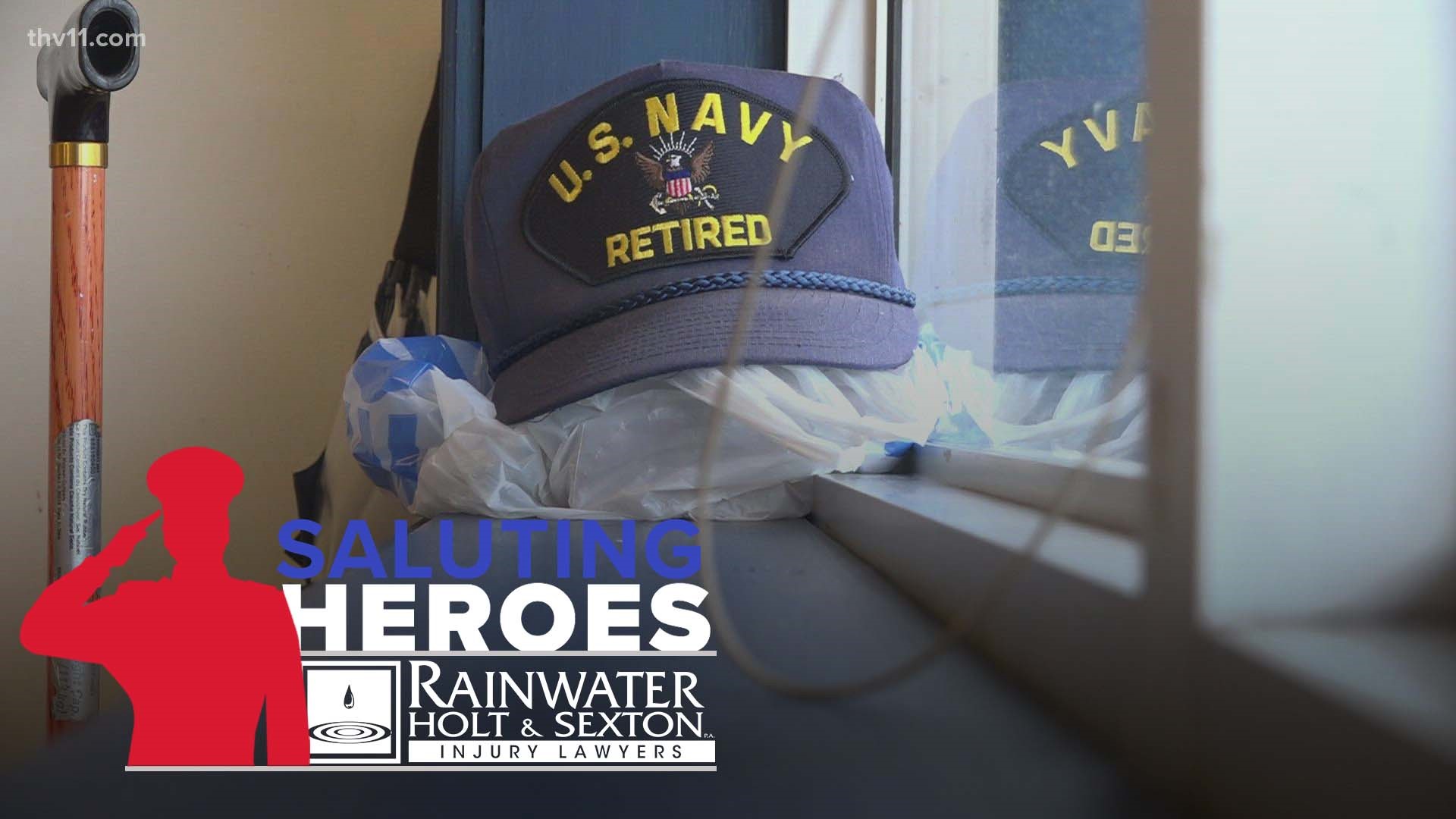SEARCY, Ark. — Every Thursday at the Chit, Chat & Chew in Searcy, the diner becomes part-breakfast club, part-veterans' club.
"We have breakfast to keep and establish relationships," said Paul Hill, organizer of a weekly fortifying feast and director of the White County Community Partnership.
Hill knows something we learned as kids. Breakfast is the most important meal of the day, and for the 20 or so members gathered a week before Christmas, this breakfast might be the most important meal of the week.
A non-veteran overhearing the conversations from across the busy restaurant might be surprised to know the mundane conversations about taking care of grandkids and diabetes phone apps are actually part of a program called Together With Veterans.
"It's a test program that approaches dealing with PTSD and particularly suicide in a very relational way," said Hill, a retired air force master sergeant with a history of preaching.
The eggs may be over-easy, but the program's subject matter is heavy. It's also necessary in a county with some 6,000 spread out vets living there.
"Most people are familiar with the suicide rates for veterans," said Hill. "What they don't know is that in the rural setting, it's 20 percent higher."
That's a startling statistic, especially for such a rural state like Arkansas.
To combat that trend, Hill and other local veterans groups get as many men and women out of their own kitchens and get them chatting over a cup of joe.
"We believe that we can solve the issues of suicide with coffee," he said. "Because if you'll have coffee with me, or you'll have coffee with my friends, you're not gonna kill yourself."
But you can't just say that at the breakfast table.
Instead, Hill relies on the simple power of conversations. They set aside direct talk about all that heavy stuff. The conversations do the work. The connections get made.
Bellies get full, while brains get relieved, and Hill hopes, subtly rewired.
"For for anyone suffering from PTSD, just coming out in public at all can be overwhelming," he said, indicating the success that comes just from getting some of his fellow diners to the table.
The gatherings have grown from three or four to dozens every week.
The group is now strong enough to do its own community outreach and lead educational programs aimed at detecting the signs of depression and mental illness that might lead to suicidal thoughts.
Hill believes everyone should be able to recognize signs of suicidal thoughts in our friends and families because the troubled friend is more likely to listen to someone close rather than a counselor or stranger.
And Hill believes it's important for all of us to know that helping that friend can be as simple and easy as a cup of coffee.
"It's the relationships," he said. "Because relationships is what it's all about."

